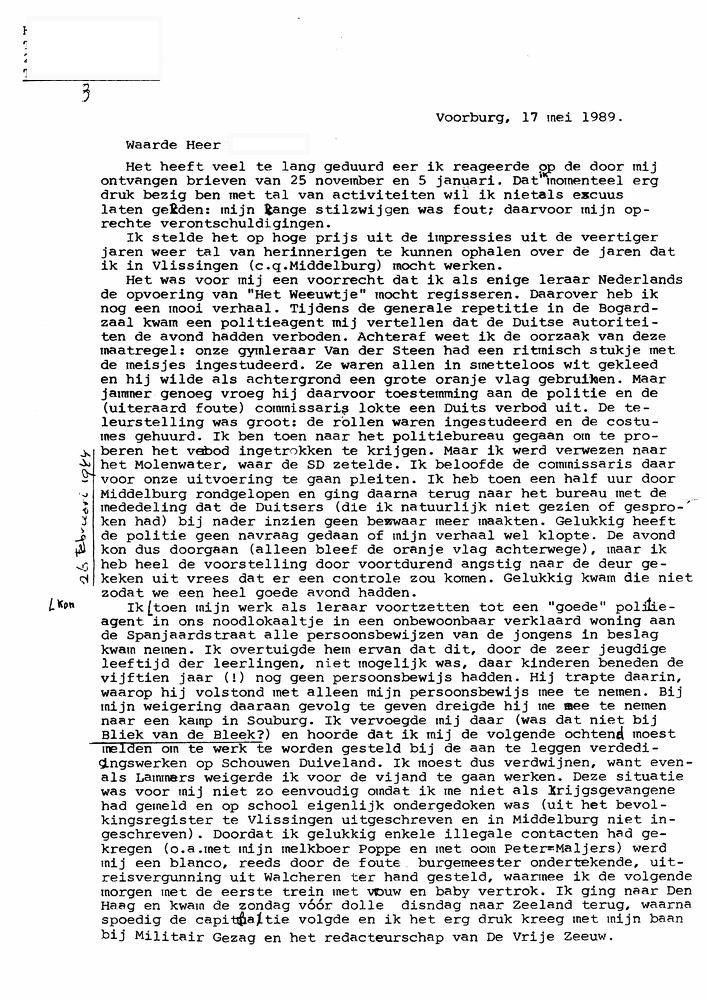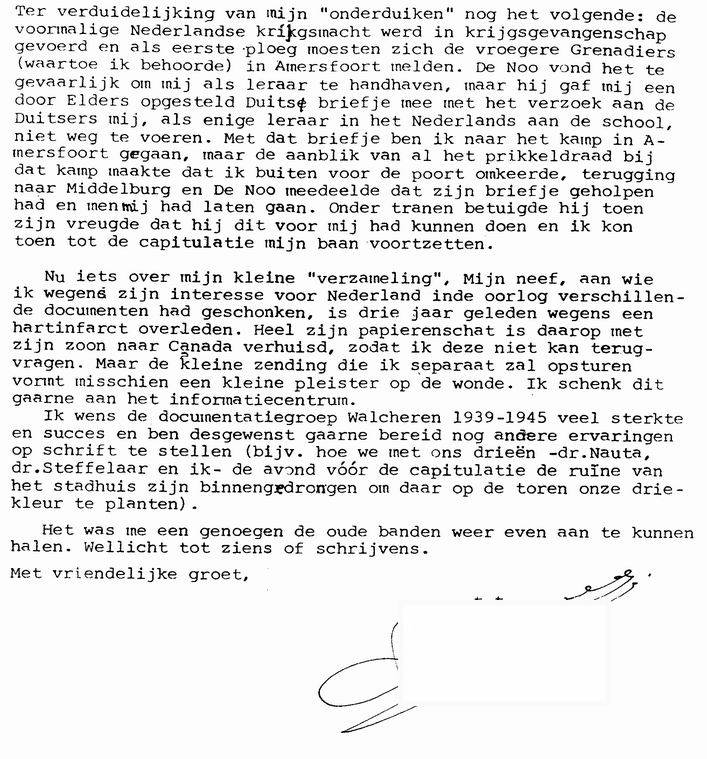Fragment 3 geeft ervaringen weer uit het laatste Middelburgse oorlogsjaar 1944. Het betreft een brief van H. Sinnema, toen docent Nederlands. Daaruit blijkt dat het soms eenvoudig was, zij het met alle gevaren van dien, de regels van het toenmalig gezag te ontduiken. Dat al vanaf vroeg in de oorlog. Jammer dat uit dit verslag niet blijkt hoe de auteur voor hem en zijn gezin aan de in oorlogstijd benodigde bescheiden kwam zoals distributiebescheiden, persoonsbewijzen etc.
Soon after the occupation the Germans enacted very restrictive laws. All connections to the Dutch Royal House were forbidden and Dutch POW’s which were temporarily free had after some time to go back into captivity. Resisting these laws could have severe consequences.
The writer of this account though, a teacher with the Higher School at Flushing, managed to “disappear” by unregistering from the towns civil register and moving to Middelburg without officially registering there. What's more, he stayed in the teaching profession and instead of laying low, he showed much courage by small but poignant acts of resistance.
During his stay in Middelburg, for instance, the school he was teaching at organized a theatrical performance and the rear of the stage was covered by a huge orange flag. At the full dress rehearsal a police officer came in and told him the flag was not allowed. The teacher went to the Middelburg police commissioner to try to get permission but this Nazi-minded officer told him to go to the local German Sicherheitsdienst. Instead of going to the SD he went back to the policestation and told the Commissioner the SD had no objection. The performance went on as planned ..
At some point he was ordered to work for the German Defences on the Island of Schouwen-Duiveland. This prompted him to leave Middelburg with his wife and their baby to The Hague. But this decision was not easy one because he didn't have any local registration and he never had followed the German order to go into captivity as a POW. Through the Flushing resistance he got a false travel pass and went to The Hague. On the Sunday before September 5th he and his family came back. Just in time, because Montgomery’s 21st Army had liberated Antwerp and from that moment on there was no opportunity to travel across the rivers in the middle of Holland. Being back in Zeeland meant that the family didn't have to suffer the dreadful food conditions that killed many north of the rivers. We have to note that it remains unclear how he obtained the necessary papers for his endeavors, like ID-cards and ration-cards ..
This might look unspectacular from today's perspective, but then all these actions did put him and his family in mortal danger!

